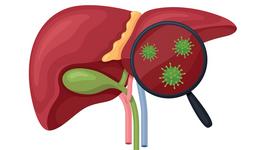News: CMN Weekly (17 December 2021) - Your Weekly CRISPR Medicine News
CMN Intelligence - The World’s Most Comprehensive Intelligence Platform for CRISPR-Genomic Medicine and Gene-Editing Clinical Development
Providing market intelligence, data infrastructure, analytics, and reporting services for the global gene-editing sector. Read more...
Top Picks
- Copenhagen-based SNIPR BIOME announced earlier this week that the European Patent Office has granted the company with a fundamental patent in the field of CRISPR-based targeting in microbiomes. According to a company press release, the broad protection afforded by this patent recognises pioneering work by SNIPR scientists as innovators of CRISPR-Cas modulation in microbiomes.
Clinical
- Intellia Therapeutics announced this week that the first patient has been dosed in its Phase 1/2 clinical trial of NTLA-2002. NTLA-2002 is a single-dose in vivo CRISPR-Cas9 gene-editing therapy candidate designed for the treatment of hereditary angioedema. The company reported in October 2021 that New Zealand’s Medicines and Medical Devices Safety Authority had authorised its application to initiate the Phase 1/2 trial. You can read more about NTLA-2002 in our recent clinical news update.
Industry
- Canadian biotech company Defence Therapeutics, which focuses on the development of vaccines and therapeutics for cancer and infectious diseases, has announced in a press release that its AccumTM platform can potently enhance Cas9 delivery in target cells. The company reported that the accumulation of AccumTM-linked Cas9 inside the nucleus of mammalian cells was at least 9-fold higher than free Cas9 following a single dose in in vitro experiments. The mechanism of action of AccumTM has not been disclosed.
- In a press release this week, Allogene Therapeutics reported that it will expand its headquarters in South San Francisco to support company growth and pipeline innovation. The company currently has 10 gene-edited cell therapy programmes in its pipeline (all of which are being developed for cancer treatment), 6 of which are at clinical stage (Phase 1).
Research & Reviews
- In an article published in Nature Communications last week, scientists in Japan report that low immunogenicity of lipid nanoparticles allows repeated administrations of CRISPR-Cas9 mRNA into skeletal muscle in mice. These findings present a possible solution to the immunogenicity associated with adeno-associated viral vectors, which are the most widely-explored vehicle for in vivo delivery, and may be useful in the development of new therapies to treat skeletal muscle disorders.
- Researchers in the US describe the detailed methodology behind their recently developed "universal" platform that can incorporate multiple vaccine targets into the same nanoparticle scaffold by CRISPR engineering of bacteriophage T4. The authors report that a T4-COVID vaccine designed with this technology elicited broad immunogenicity and complete protection against virus challenge in a mouse model. The findings were published recently in Methods in Molecular Biology.
- Researchers in the UK demonstrate the application of dFnCas12a-VPR for multiplex gene regulation in mammalian cells. dFnCas12a-VPR is a nuclease dead form of Cas12a from the bacteria Francisella novicida that possesses a shorter PAM sequence than Acidaminococcus sp. (As) or Lachnospiraceae bacterium (Lb) Cas12a variants, enabling denser targeting of genomic loci without loss of targeting efficiency. The researchers observed that dFnCas12a-VPR could be used as a synthetic transcription factor that offers a flexible tool for transcriptional modulation, and that it further expands our understanding of the design capabilities and limitations related to multiplexed targeting. The findings were published in Nucleic Acids Research this week.
- Scientists in Japan show that CRISPR-Cas9-mediated base editing enables a chain reaction through sequential repair of sgRNA scaffold mutations. The findings were published in Science Reports this week.
- Towards CRISPR powered electrochemical sensing for smart diagnostics. An opinionated review that examines the rapidly evolving applications for CRISPR-Cas integrated electrochemical biosensor detection systems and the future scope associated with such diagnostics.
- CRISPR/Cas9 in Gastrointestinal Malignancies. This review from scientists in Germany discusses recent applications for CRISPR-Cas9-based genome editing in gastrointestinal cancer research including colorectal cancer, gastric cancer, oesophageal cancer, pancreatic duct adenocarcinoma, and hepatocellular cancer. These applications include functional studies of candidate genes in cancer cell lines or organoids in vitro as well as in murine cancer models in vivo, library screening for the identification of previously unknown driver mutations and even gene therapy of gastrointestinal cancers.
Highlights from 63rd American Society for Hematology (ASH) Annual Meeting
The ASH meeting look place from December 11th-14th virtually and in Atlanta. Here are the highlights from companies working in the therapeuic gene-editing space:
- Emendo Biotherapeutics, a next-generation CRISPR company presented data from a CRISPR-based ex vivo strategy involving allele-specific excision of the mutant ELANE allele responsible for severe congenital neutropenia. The company showed remarkable excision levels of the mutant allele (25% indicating that nearly 50% of the cell population had undergone excision at the mutant allele). Cells sourced from healthy donors did not exhibit excision, while neutrophil levels in mouse models with excised SCN patient-derived HSCs increased nearly two-fold, compared to models that received non-treated cells. The excised cells showed long-term engraftment in the bone marrow, spleen and peripheral blood.
- Sangamo Therapeutics announced updated preliminary proof-of-concept clinical data from the Phase 1/2 PRECIZN-1 study of SAR445136, a zinc finger nuclease gene-edited cell therapy candidate (formerly known as BIVV003) in development with Sanofi for the treatment of sickle cell disease (SCD). The poster presentation, which includes follow-up data up to 91 weeks for the longest-treated patient, is available on Sangamo’s website here.
- Poseida Therapeutics provided updates on its BCMA-targeted CAR-T clinical trials. Among the highlights was that P-BCMA-101 (an autologous CAR-T candidate) demonstrated strong anti-tumour activity and was well tolerated in nearly 100 patients with relapsed or refractory multiple myeloma (MM) at the time of data cutoff. Learnings from P-BCMA-101 informed development of the Poseida's first fully allogeneic CAR-T product candidate, P-BCMA-ALLO1, which is currently being investigated in a Phase 1 trial for MM. Read more about Poseida's therapeutic strategy and pipeline in our interview with CEO Dr. Eric Ostertag.
- Allogene Therapeutics reported positive results from its Phase 1 UNIVERSAL trial for single dose treatment with ALLO-715 AlloCAR T™ cell therapy in relapsed or refractory MM. The company reports that ALLO-715, which is generated using TALEN gene-editing technology, is the first allogeneic anti-BCMA CAR T to demonstrate safety and substantial efficacy in MM. Read more about ALLO-715 and the UNIVERSAL trial in our previous clinical news update.
- Allogene Therapeutics also reported positive Phase 1 data from the ALPHA trials in Non-Hodgkin’s lymphoma, which reveal potential for AlloCAR T™ therapy to be a safe and durable alternative to autologous cell therapy in CAR T naive patients.
- Graphite Bio presented an overview of its Phase 1/2 CEDAR trial evaluating the investigational gene-editing therapy candidate GPH101 in sickle cell disease (SCD). GPH101 was the first experimental therapy designed to address and fix the underlying single point mutation that causes SCD, and it has already been granted orphan drug designation from the U.S. FDA. The company obtained IND approval for GPH101 late last year, and it expects to obtain initial proof-of-concept data from the CEDAR trial by the end of 2022. Read about all of the ongoing clinical programmes for SCD in our recent gene-editing trial roundup.
- Precision BioSciences reported clinical programme updates for its allogeneic CAR T pipeline. The company is using its meganuclease-based ARCUS® genome-editing platform to develop allogeneic CAR T and in vivo gene-editing therapies. The presentation at ASH included updated data from a Phase 1/2a clinical study of PBCAR0191 with enhanced lymphodepletion (eLD), showing high response rates in heavily pre-treated relpased or refractory subjects with predominantly advanced or aggressive B-cell malignancies. You can read more about the ARCUS platform and some of Precision's clinical programmes in an earlier clinical trial update.
- Wugen Inc., a clinical-stage biotechnology company developing a pipeline of off-the-shelf cell therapies for cancer presented new pre-clinical data supporting the safety and efficacy of WU-CART-007 for T-cell malignancies. WU-CART-007 is CD7-targeting allogeneic off-the-shelf CAR-T cell therapy candidate developed using CRISPR-Cas9 technology. The company also announced that the U.S. FDA has cleared its IND application for WU-CART-007. Wugen is currently preparing for enrollment of a Phase 1/2 clinical trial for relapsed or refractory T-cell acute lymphoblastic leukaemia or lymphoblastic lymphoma.
- Editas Medicine reported pre-clinical data demonstrating robust tumour reduction and clearance using novel, engineered induced natural killer (INK) cells. The therapeutic strategy relies upon Cas12a-based multiplexed editing of induced pluripotent stem cells (iPSCs) to enhance iNK tumour killing ability, and the new data indicate a potential therapeutic approach for solid tumours.
- Cellectis shared encouraging clinical data from its BALLI-01 trial in relapsed or refractory B-cell acute lymphoblastic leukaemia (B-ALL), and pre-clinical data from TALGlobin01. The goal of the BALLI-01 trial is to evaluate the safety, maximum tolerated dose, and preliminary anti-leukaemia activity of UCART22, a TALEN-engineered CD22-targeting cell therapy in B-ALL, while TALGlobin01 is TALEN-engineered to correct the SCD-causing mutation via an adeno-associated virus (AAV)-delivered repair template.
Webinars
- Combinatorial Single Cell CRISPR Screens: Challenges and Applications. In this webinar from The Scientist Creative Services Team in collaboration with 10x Genomics, an expert panel will discuss how single cell sequencing enhances throughput in CRISPR gene-editing applications. Date and time: Wednesday, January 12, 2022 1:00 - 4:00 PM Eastern Time. Register here.
Huh, Heh, Wow
- Your Cold Brew Won't Survive a Hot World: An opinion piece for Bloomberg that looks at how new plant breeding technologies, including CRISPR, can help the coffee bean survive climate change.
Tags
ArticleMissing linksNewsCMN WeeklyAcute Lymphoblastic Leukemia, ALLB-cell Malignancy, NHLCancerHereditary angioedema, HAEMultiple Myeloma, MMMultiple Solid Tumor AdultNon-Hodgkin Lymphoma, NHLSevere Congenital Neutropenia, SCNSickle Cell Disease, SCDSolid Tumor AdultSolid TumoursCAR-TARCUSCRISPR-CasCas12aCas9MeganucleasesTALENsAllogene Therapeutics, Inc.AstraZenecaCellectis S.A.Defence TherapeuticsEditas Medicine, Inc.Emendo BiotherapeuticsGraphite Bio, Inc.Intellia Therapeutics, Inc.Poseida TherapeuticsSangamo Therapeutics Inc.Sanofi S.ASNIPR BiomeWUGEN Inc.TrialsClinicalIND - Investigational New DrugPre-clinical
CLINICAL TRIALS
Sponsors:
Base Therapeutics (Shanghai) Co., Ltd.
Sponsors:
Base Therapeutics (Shanghai) Co., Ltd.







